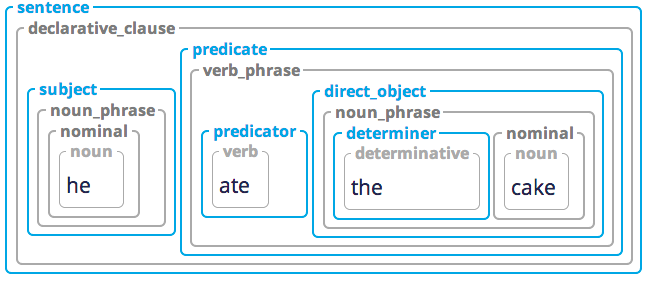Categories like "Noun" and "Adjective" can be said to be lexical categories. But what are categories like "subject" and "object" called?
-
1The phrases "core arguments" and "oblique" seems to cover a lot of scenarios. Core arguments would cover all the variations on nominative-accusative, subject-object, ergative–absolutive and so on. Oblique does a reasonably good job of referring to everything else.– MatthewMartinCommented Jan 23, 2014 at 20:09
1 Answer
Subject and object are names of grammatical function categories.
The grammatical function of a constituent in a sentence is determined by its relation to other constituents in the sentence. The subject, for example, is what the meaning of the predicate is predicated of, and it also agrees with the head of the predicate - the main verb, if there is one - in person, number and gender. Note that verb is not a grammatical function category but a syntactic category. The verb in a sentence realizes the grammatical function of head of the predicate (sometimes called the predicator), as can be seen in the syntactic structure tree below, where the grammatical function categories appears in blue. You can read a little more about this distinction
here.
-
2This is all true only of English grammar. Verb agreement, for instance, varies widely from language to language, and is frequently absent. The grammatical categories of Subject and Direct Object also vary from language to language; there is no such thing as a "Subject" or "Object", for instance, in a transitive sentence which uses the Ergative argument system, which is common in many languages.– jlawlerCommented Jan 23, 2014 at 18:26
